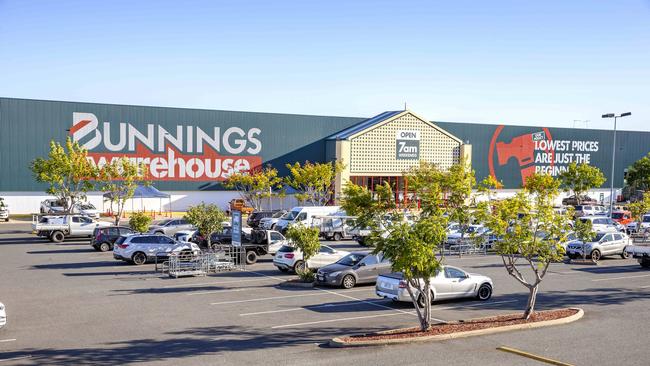How to get rich from real estate without buying any bricks
Investing beyond traditional houses and units can be a volatile ride, but experts say there are attractive opportunities.
SmartDaily
Don't miss out on the headlines from SmartDaily. Followed categories will be added to My News.
Bricks and mortar have built wealth for millions of Australians over many decades, but it’s not the only way to grow real estate riches.
There is a range of property investments that don’t require you to own a single house or unit.
They’re called real estate investment trusts, and they add one of the most important ingredients to any investment portfolio: diversification, which reduces risk and opens you up to greater potential rewards.
REITs, previously known as property trusts, can be bought and sold on the sharemarket and allow everyday Aussies to become part-owners of shopping centres, office blocks, hotels, warehouses, apartment blocks and more.
Investors who buy units in these trusts receive tenant income from the trust and also share the capital growth – and losses.

Volatility is a worry for many investors, with the REIT rollercoaster too scary for some as these investments are traded daily on the ASX.
REITs have had a tough 2020, with many losing more than half their value during the March COVID crash as CBDs across Australia became deserted.
Apartments and retail were among the hardest hit property sectors, but many REITs have already recovered at least half of their lost market value.
And some have done much better than others: BWP Trust, which owns 68 Bunnings warehouse sites across Australia, has rebounded strongly and climbed back to fresh record highs in recent weeks.
Many Australians are REIT investors but don’t know it, with a typical super fund holding up to 10 per cent of a members’ money in property where REITs are a core part.
Now many be an good time to invest further in REITS, according to some experts, with their unit prices still much cheaper than earlier this year.
Westfield shopping centre owner Scentre Group’s unit price plunged from $4 to $1.50 between January and March and this week was trading near $2.80.
Quay Global Investors portfolio manager Chris Bedingfield views the overall REIT sector as underpriced.

“We’re not scared of retail at the moment – we think there’s certainly some interesting opportunities at these depressed prices,” he says.
Millions of Aussies have worked from home this year, but the jury is still out on whether this will dent future office demand or be offset by the need for more office space per worker because of social distancing.
SG Hiscock and Company head of property Grant Berry says investors should think about the property sector recovery rather than extrapolating the stay-at-home scenario into the future.
“There will be a bit more working from home going forward … our thinking is over the whole market there will be about one day a week impact,” he says.
Investment giant Credit Suisse says real estate should benefit from the economic recovery and low interest rate environment, and it favours growth sectors such as industrial and logistics real estate.
Whatever you think about the outlook for property, it’s worth diversifying beyond simple bricks and mortar and into the wider world of real estate in Australia and overseas.



